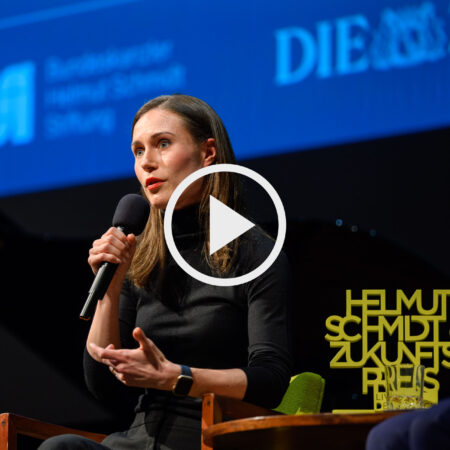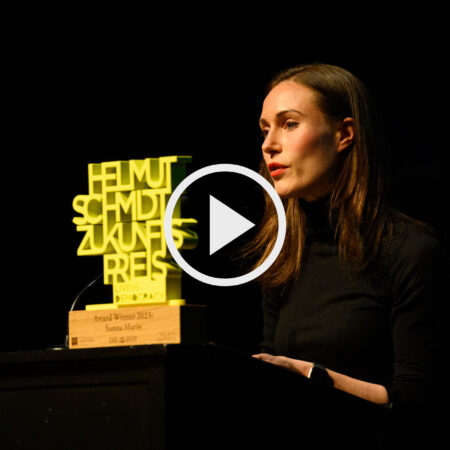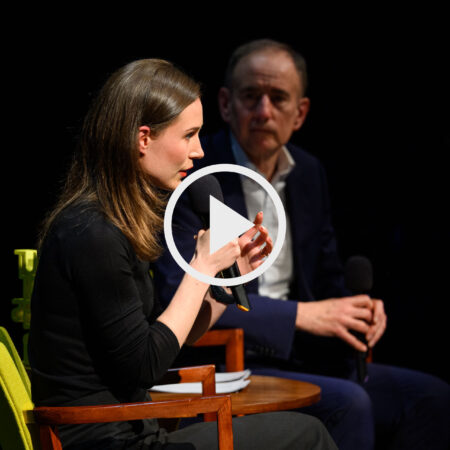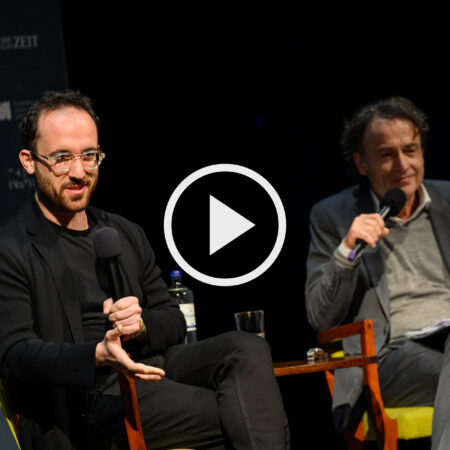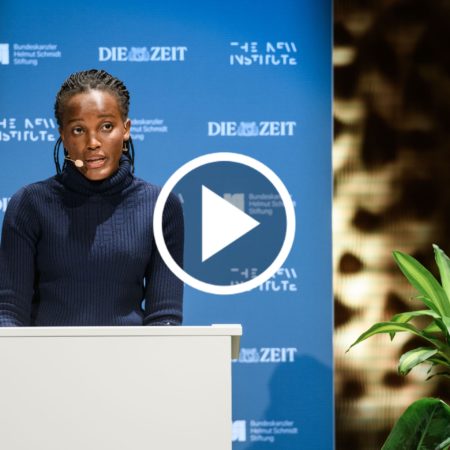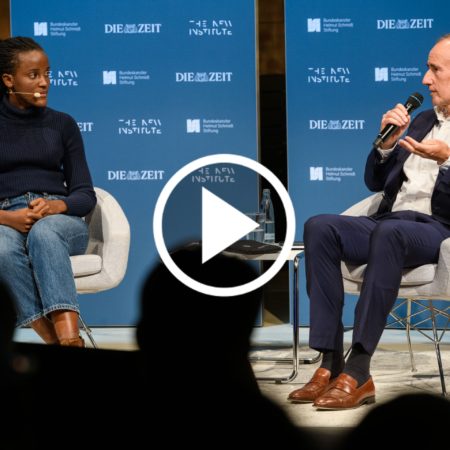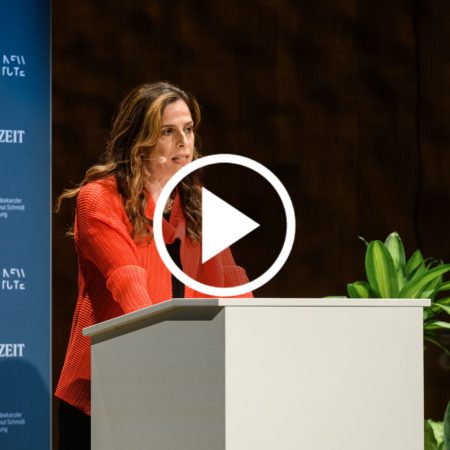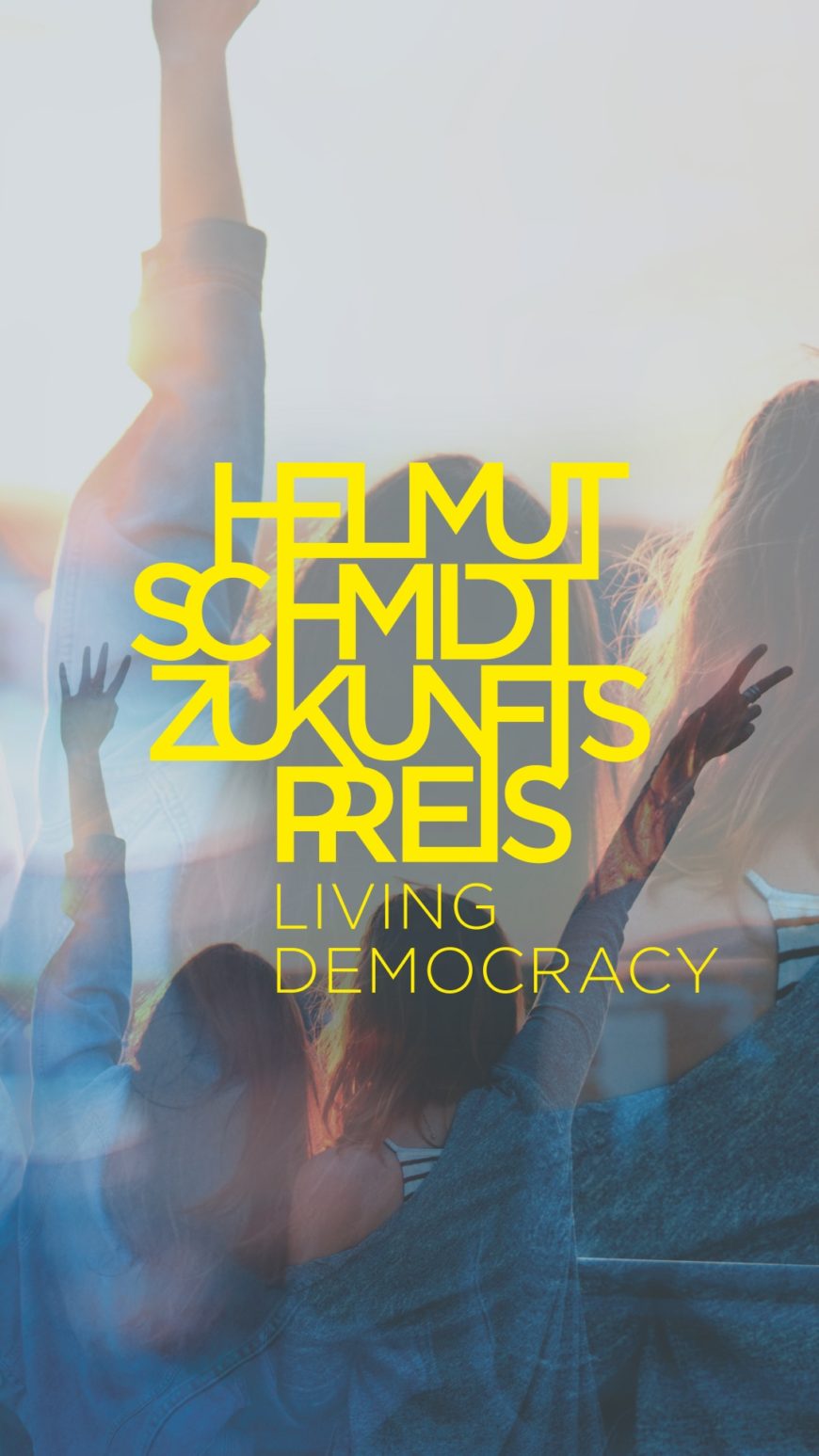
Helmut-Schmidt-Zukunftspreis
Living democracy
„It has rarely been so clear: Humanity and its planet need change. For peace and freedom. For the environment and the climate. For equal opportunities and social balance“, says Uwe Jean Heuser, jury chairman of the Helmut-Schmidt-Zukunftspreis. For this reason, the three partners – DIE ZEIT, the Bundeskanzler-Helmut-Schmidt-Stiftung (Federal Chancellor Helmut Schmidt Foundation) and THE NEW INSTITUTE – launched the Helmut Schmidt Future Prize in 2022, an award that is presented annually to an international personality for their innovative achievements in the fields of democracy, society and technology.










Meredith Whittaker receives the Helmut-Schmidt-Zukunftspreis 2024
Everyone is talking about artificial intelligence – about its opportunities and threats. The question of how to develop it in a humane and welfare-oriented way is of great relevance. Meredith Whittaker is one of the most influential voices in the debate on AI – whether as a rebellious Google developer, professor at New York University or government advisor. Today, she is President of the Signal Foundation, which is responsible for the messenger service of the same name. The jury of the Helmut Schmidt Future Prize honors her for fighting for a responsible and humane development of AI.
On May 15th, Meredith Whittaker was awarded the Helmut Schmidt Future Prize 2024 at the Thalia Theater in Hamburg. The Signal president received the prize for her commitment to the humane and welfare-oriented development of artificial intelligence. Meredith Whittaker is one of the most influential voices in the debate on AI. She spoke with Uwe Jean Heuser, among other topics, about securing one’s privacy on the internet: “I wanna be known for my work and not for trivialities about my teen years.”
At the award ceremony, seven young future designers and Ella Elia Anschein presented their ideas, which they had developed at the Helmut Schmidt Future Festival from May 13th to 15th, 2024, at Leuphana University.
Joschka Fischer reminded ZEIT editor-in-chief Giovanni di Lorenzo in their conversation that even important goals – such as climate protection – require democratic majorities. Fischer addressed the young generation directly, referencing the performance „What We Will Not Regret“ by the future designers.
Afterwards, all guests were invited to a get-together on stage and in the Nachtasyl.
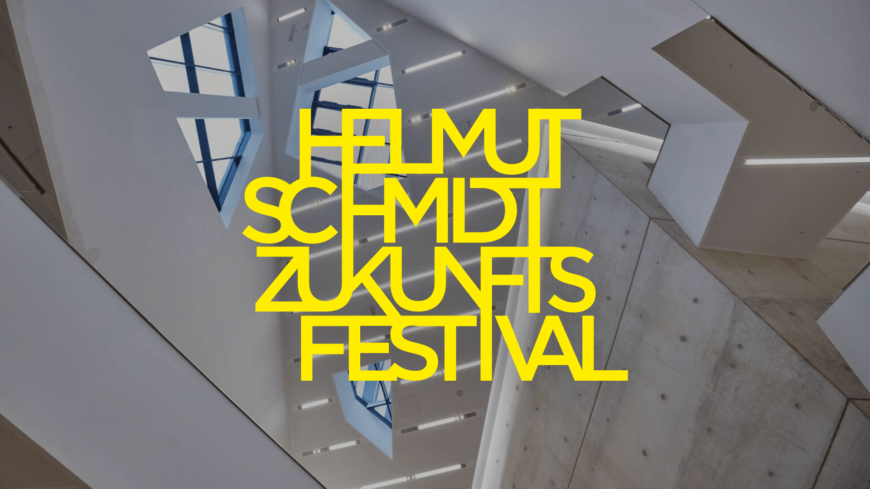
The Helmut Schmidt Future Festival 2024
What would we regret later because we didn’t do it?
This year, almost everything is at stake. Populism is challenging democracy, the fossil fuel economy is challenging the planet, artificial intelligence is challenging our compass of values. Society is rapidly reshaping itself, with or without us. It is better not to leave change to chance and certainly not to any destructive, anti-humanist forces. Better to consciously invent the next society together.
Introducing new ideas to the world with people in mind: That is what the Helmut Schmidt Future Festival is all about. From May 13th to 15th, around 60 young future designers came together on the campus of Leuphana University Lüneburg with thought leaders and innovators such as Luisa Neubauer, Nora Sophie Griefahn, and Philipp von der Wippel to find innovative and effective answers to these central challenges: How do we protect the climate without dividing society? How do we defend democracy without depriving it of the vision of freedom? And how do we use artificial intelligence for the common good?
Sie sehen gerade einen Platzhalterinhalt von YouTube. Um auf den eigentlichen Inhalt zuzugreifen, klicken Sie auf die Schaltfläche unten. Bitte beachten Sie, dass dabei Daten an Drittanbieter weitergegeben werden.
Mehr Informationen









The Helmut Schmidt Future Prize 2023
Finnish social democrat Sanna Marin is the award winner of the Helmut Schmidt Future Prize 2023 which was awarded on May 4th at Hamburg’s Thalia Theater.
“The Helmut-Schmidt-Zukunftspreis goes to a pioneering European with clear values and her own political style. She has brought Finland through the corona pandemic most effectively. Sanna Marin set out to make the world a better place, not simply to be a politician. That remains her standard. She has already shaped a new and effective style of politics, shown a clear edge against the Russian aggressor and advanced climate protection. In addition, Sanna Marin has huge potential for the future – namely to continue to make her country, Europe, the world a little safer, fairer and greener with a clear view of the realities,“ says Uwe Jean Heuser, chairman of the Helmut-Schmidt-Zukunftspreis-jury.
Igor Levit, pianist and jury member, played Beethoven and Schubert and explained in conversation with ZEIT editor-in-chief Giovanni di Lorenzo why he would rather give up playing piano than his political activism. Another highlight: Ella Elia Anschein and six future creators presented in a poetic recording the results of the Helmut Schmidt Future Festival – where young visionaries developed ideas for a better future together with Emilia Milla Fester, Kübra Gümüsay and other pulse generators at the Leuphana University. Tagesthemen host Aline Abboud led through the event.
Watch the recording and the highlights of the award ceremony here:
Sie sehen gerade einen Platzhalterinhalt von YouTube. Um auf den eigentlichen Inhalt zuzugreifen, klicken Sie auf die Schaltfläche unten. Bitte beachten Sie, dass dabei Daten an Drittanbieter weitergegeben werden.
Mehr InformationenThe Helmut Schmidt Future Festival 2023
What makes a new idea a good idea?
Many people have good ideas. Quite a few even become rich with them. But which ideas really have a future and deliver what they promise: to be a sustainable contribution to a better world? Innovations can inspire. But they only become significant when they are designed with responsibility.
The Helmut Schmidt Future Prize has been given its own future festival. On May 3th and 4th 2023, nearly 50 future creators and pulse generators came together on the campus of Leuphana University to explore responsible change and bring new ideas to the world. Among the participants were Emilia Milla Fester (youngest member of the Bundestag for Die Grünen), Kübra Gümüsay (author), Anne Lamp (founder and CEO of Traceless) and Philipp von der Wippel (co-founder and chairman of Project Together). At the Helmut Schmidt Future Award ceremony, the key ideas were presented in form of a poetic recording on stage.








The Helmut Schmidt Future Prize 2022
Vanessa Nakate is the first award winner of the new Helmut Schmidt Future Prize.
This is how the jury explains their choice: „Vanessa Nakate is one of the leading voices for climate justice, a voice of the young generation, of the future, of the Global South. She is advocating for Uganda, Africa and beyond, for a large part of the planet that is particularly hard hit by climate change and least culpable for it. She is courageous, innovative, responsible, and represents many activists who are defining a new global common good. We look forward to learning much more from Vanessa Nakate in the future, and we are pleased and respectful to award her the Helmut Schmidt Future Prize 2022.“
Watch the highlights of the award ceremony here:
The Prize
„Politics is not simply thinking, but also acting.“
(Helmut Schmidt, 1969)
Helmut Schmidt understood democracy as a struggle for the best possible solutions. He trusted in the strength of rational elements and was convinced that a compromise had to be reached at the end of intensive debates on political issues. According to Schmidt’s classical understanding, political decisions were taken in parliaments by democratically legitimized parties.
At the same time, Schmidt cultivated an exchange of views and debate across milieus with broad sections of society, and „trust“ for him carried immense significance as a political category. He attached great importance to exploring complex problems and illuminating them in a well-founded manner from different perspectives. This explains his thirst for knowledge and his openness to new and interdisciplinary approaches. Schmidt recognized early on that the future issues of the late 20th century could not be resolved within the narrow confines of the nation-state. Rather, he was convinced that European answers and global initiatives were required.
In the future, the Helmut-Schmidt-Zukunftspreis will be presented annually to an international personality whose significant work stands for innovative achievements in democracy and the common good.
The members of the jury
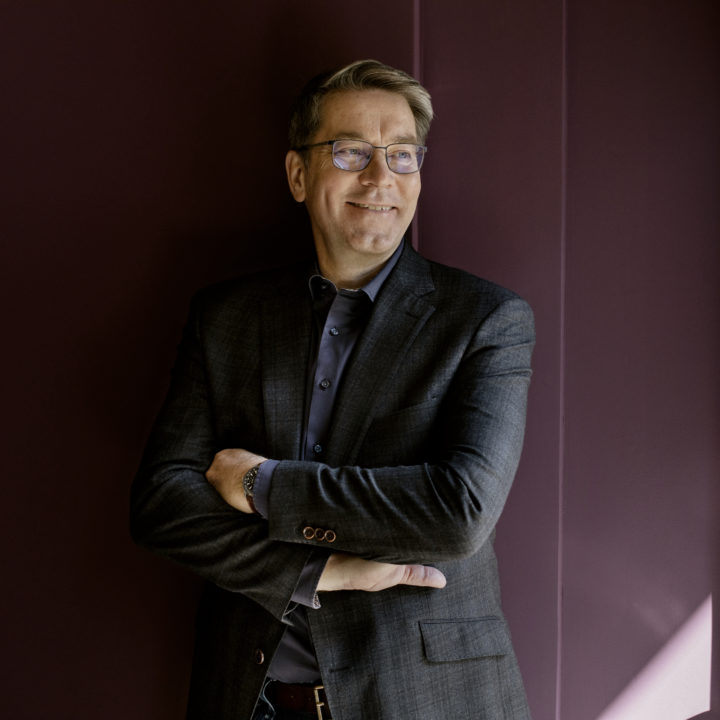
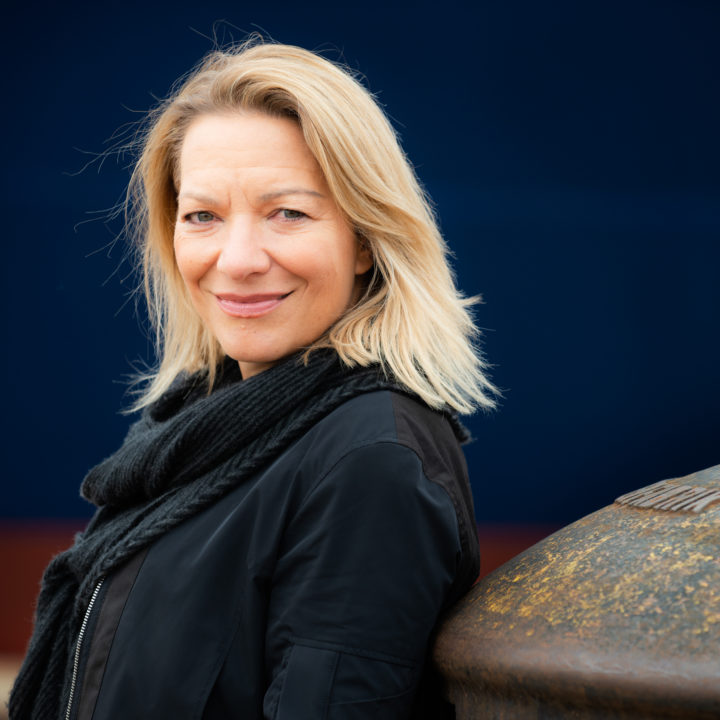
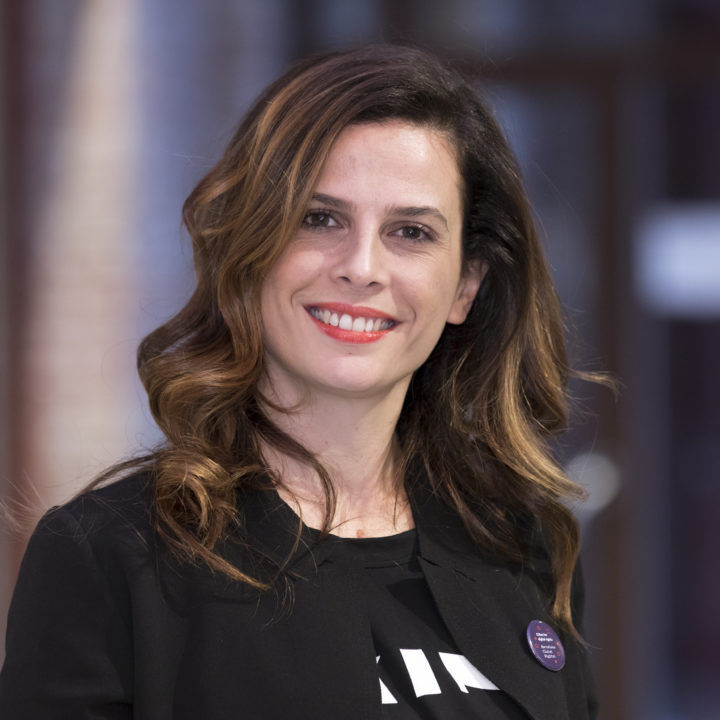
Francesca Bria has been listed in the Top 50 Women in Tech by Forbes Magazine, and in the World's top 20 most influential people in digital government by Apolitical. Francesca Bria has been awarded Commander of the Order of Merit of the Italian Republic.
© privat
Uwe Jean Heuser is Head of the Green Department of the weekly newspaper DIE ZEIT. He studied economics in Bonn and Berkeley (USA), completed his PhD in Cologne and achieved a master's degree at Harvard. He is one of Germany's most renowned business journalists and non-fiction authors.
At DIE ZEIT, he was a co-founder of the Reform Workshop, which searched worldwide for new reform ideas from 1997 to 2000 and also worked internally to open up the newspaper. He was then head of the business department until 2021, when he co-founded, developed and has since headed GREEN, ZEIT's new sustainability department. From 2015 onwards, he additionally edited the magazine ZEIT Geld (ZEIT Money). Today, he is the editor of the quarterly magazine ZEIT für Unternehmer (ZEIT for entrepreneurs), which he co-developed in 2018. In 2004 he received the Herbert Quandt Media Prize for the collection of articles "Creators and Destroyers". In 2011, he was awarded the Dietrich Oppenberg Media Prize by Stiftung Lesen. His book "Humanomics" won the getAbstract International Book Award as German Business Book of the Year 2008. "Anders Denken" was shortlisted for the German Business Book Award in 2013. His latest book, "Capitalism Included", describes how we can survive the battle against the populists. In addition to his journalistic work, Uwe Jean Heuser has lectured at Harvard, New York University and St. Gallen. Today he is an honorary professor of economics at Leuphana University in Lüneburg and is involved in several foundations. © Claudia Höhne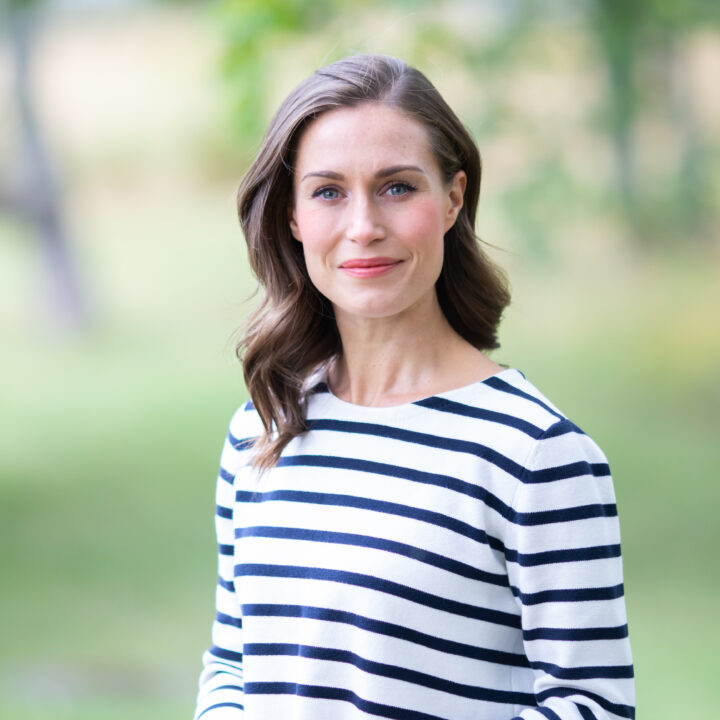

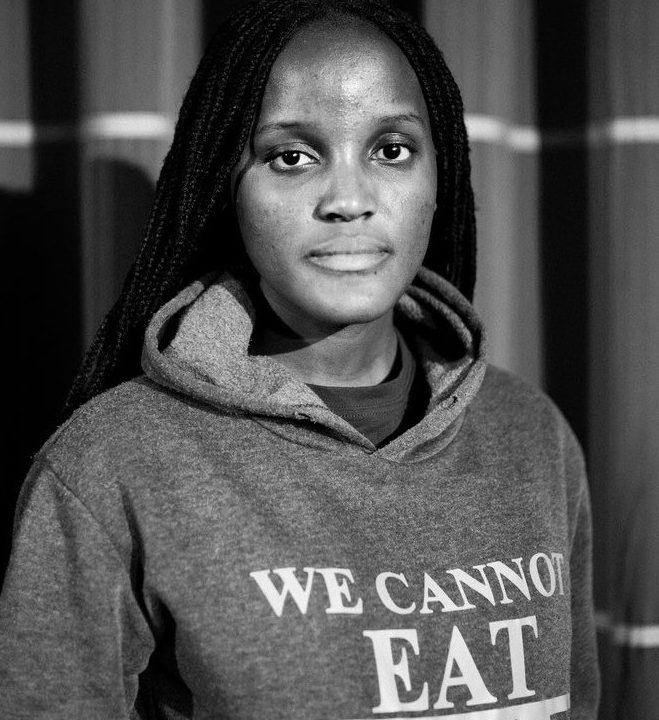
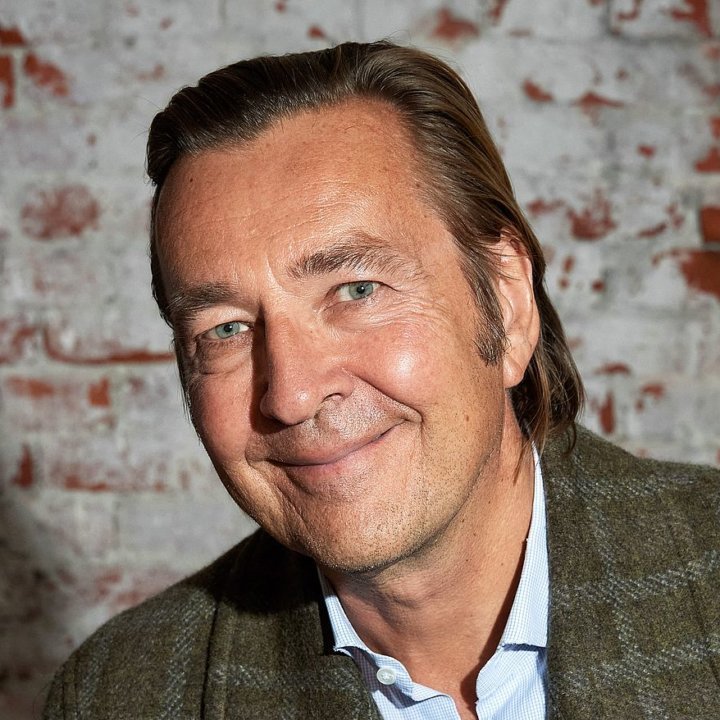
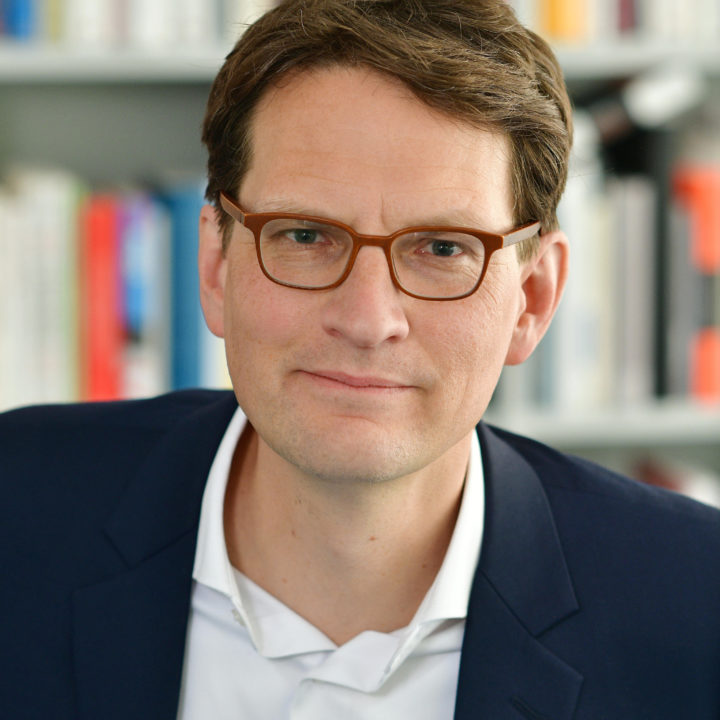
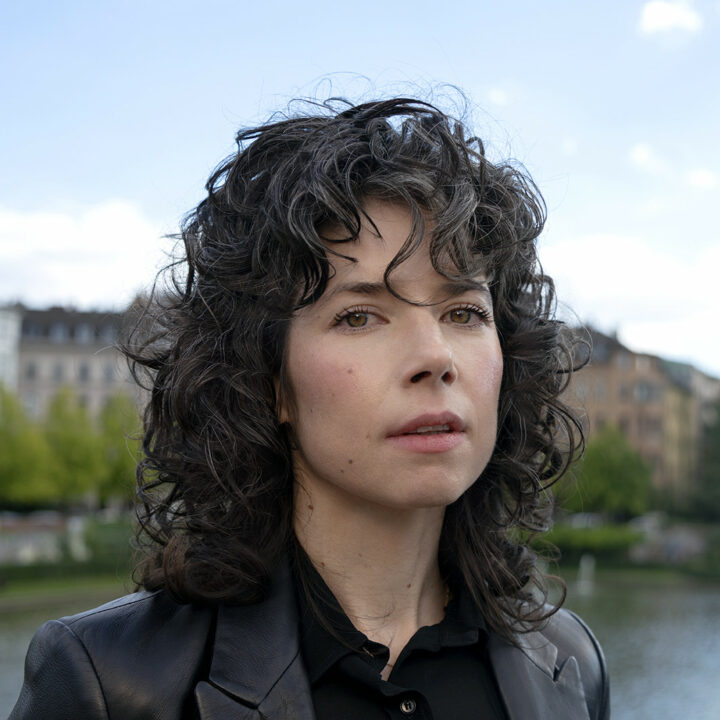
The Initiators
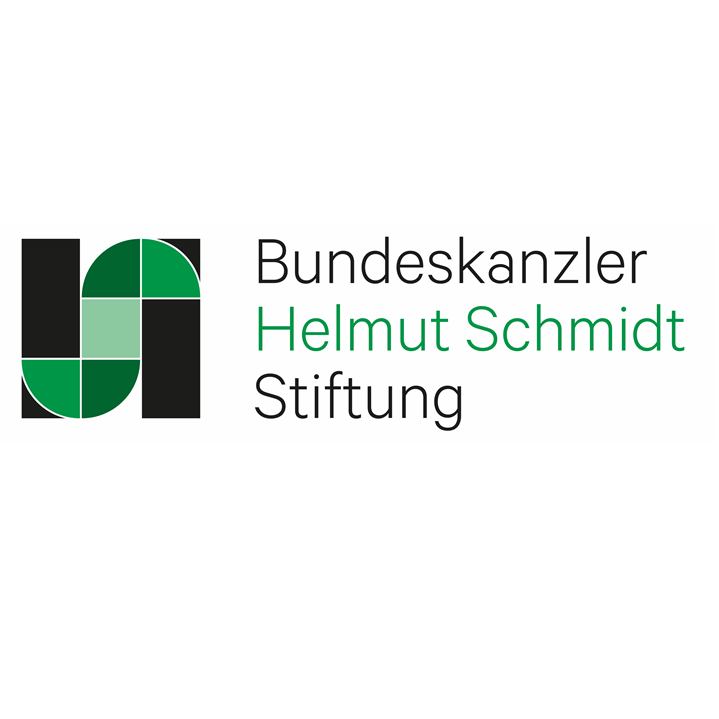
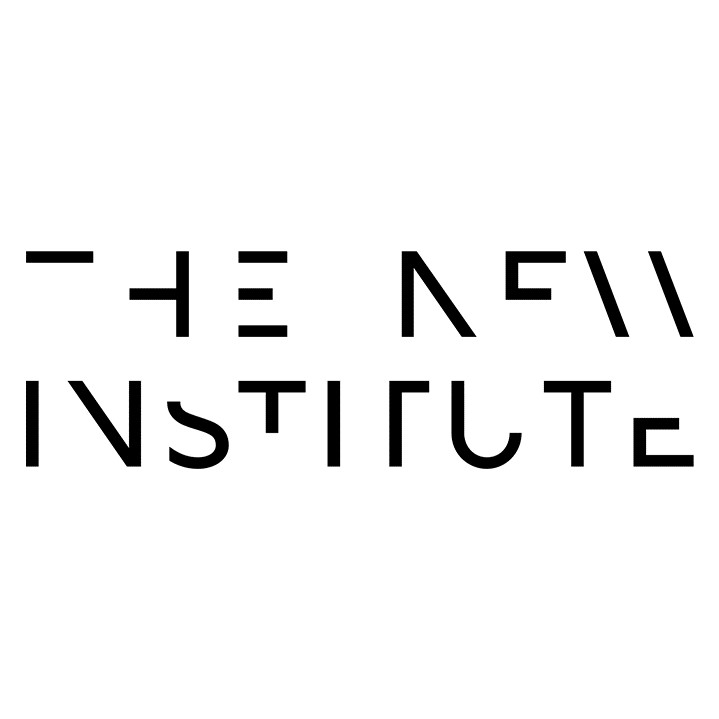
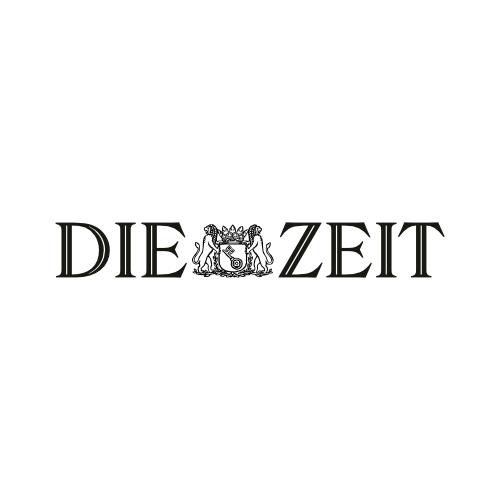
The Helmut Schmidt Future Festival is a joint initiative with
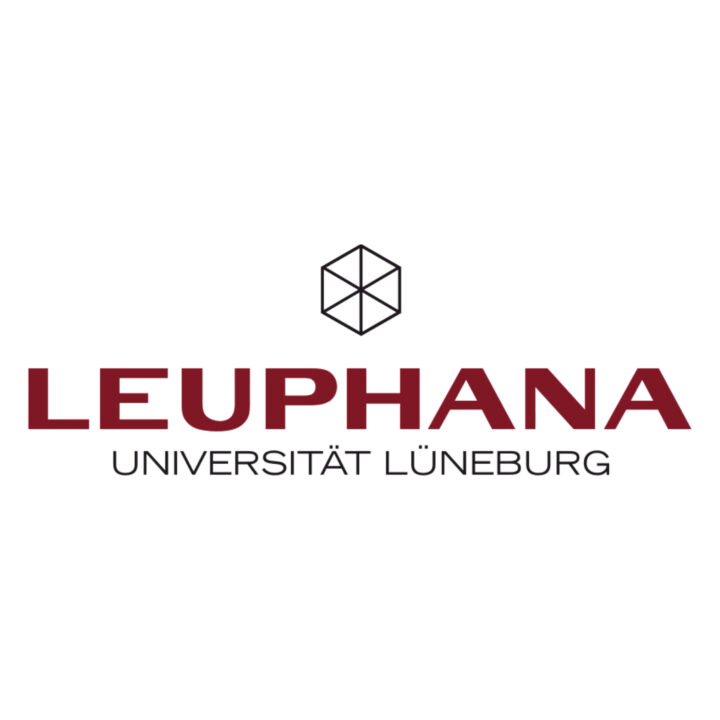
We like to thank Project Together for their support of the Future Festival
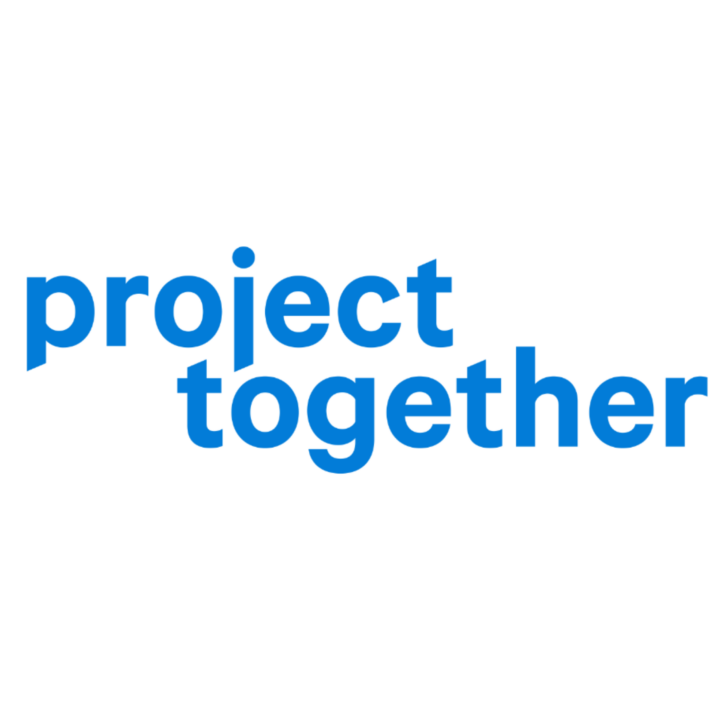
Contact
Helmut-Schmidt-Zukunftspreis
DIE ZEIT
Corporate Communications and Events
Helmut-Schmidt-Haus
Buceriusstraße, entrance Speersort 1
20095 Hamburg
email: helmut-schmidt-zukunftspreis@zeit.de
Tel: +49 40 / 32 80 – 237
Fax: +49 40 / 32 71 11

